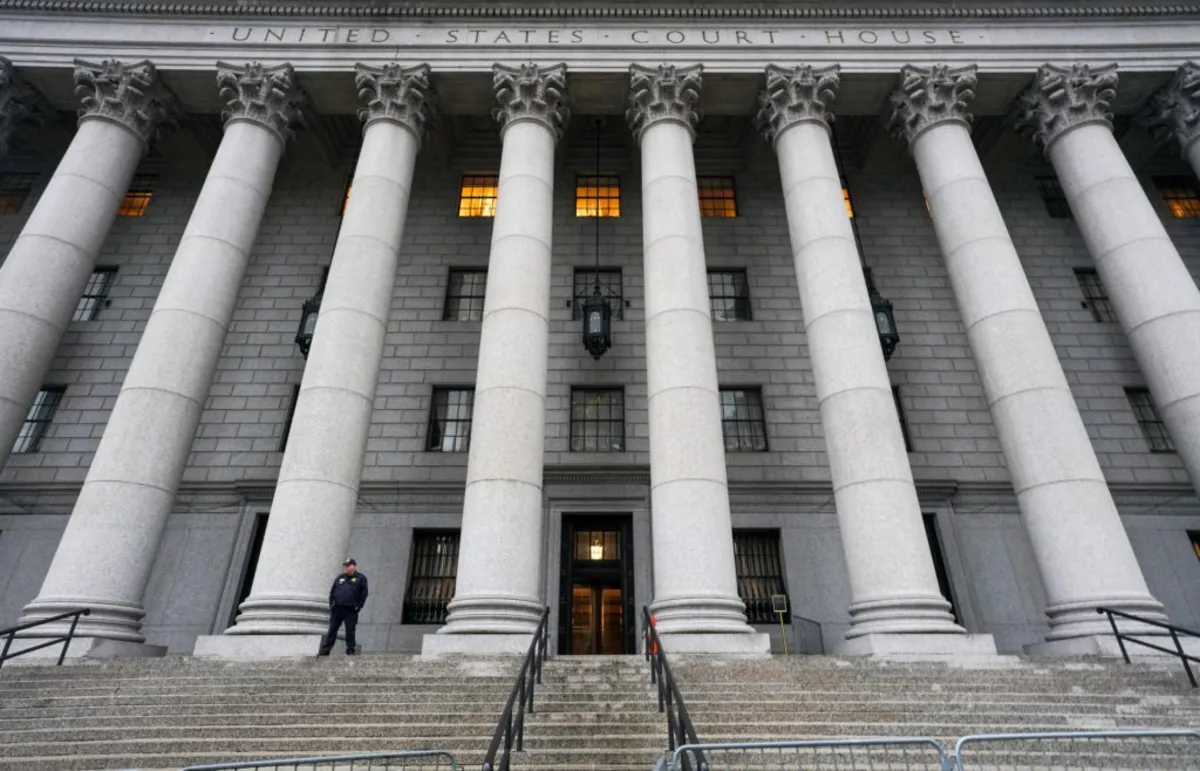
In a recent development regarding the notorious case of Jeffrey Epstein, the U.S. Justice Department has made a request to unseal grand jury transcripts related to the prosecutions of Epstein and his former associate, Ghislaine Maxwell. However, former federal prosecutors express skepticism about whether this move will yield significant new information about Epstein's heinous crimes.
Jeffrey Epstein, a convicted sex offender, died in his jail cell in August 2019, shortly after his arrest on sex trafficking charges. Ghislaine Maxwell, who was convicted of similar charges in December 2021, is currently serving a 20-year prison sentence. The Justice Department's recent request aims to promote transparency following backlash over its decision not to release additional files from the Epstein investigation.
Attorney Sarah Krissoff, who served as an assistant U.S. attorney in Manhattan from 2008 to 2021, described the Justice Department's request as “a distraction.” She commented on the government's attempt to portray action where little substantial change is likely to occur. According to Krissoff, the nature of grand jury presentations is typically very concise, often providing just enough information to secure an indictment without revealing comprehensive details about the case.
Another former prosecutor, Joshua Naftalis, noted that the transcripts are expected to be limited in scope and content. He estimated that the transcripts might only total a few hundred pages at most, suggesting that they would not contain the extensive details the public desires. “People want the entire file, but that’s just not what this is,” Naftalis stated.
Both Krissoff and Naftalis emphasized that the grand jury process in Manhattan usually involves federal agents summarizing witness interviews, differing from public perceptions of grand jury proceedings in other jurisdictions. This means the transcripts could lack the depth and detail that many are hoping for. Krissoff predicted that judges overseeing the Epstein and Maxwell cases might reject the request due to ongoing legal considerations, including the anonymity of victims involved.
Krissoff pointed out that appealing to public interest may not be sufficient grounds for judges to release the transcripts. A 1997 ruling by the 2nd U.S. Circuit Court of Appeals does grant judges discretion to release grand jury information, but the circumstances surrounding this case are complex. The presence of underage victims and the ongoing legal processes surrounding Maxwell may lead to a cautious approach by the courts.
Former federal prosecutor Cheryl Bader echoed these sentiments, noting that judges will likely take their time in making a decision, especially given the sensitive nature of the case. The traditional secrecy of grand jury proceedings may further hinder the release of these transcripts, as the government aims to balance public interest with the protection of victims.
The request to unseal the grand jury transcripts has also raised eyebrows due to its timing and the involvement of high-ranking Justice Department officials. Observers like Mitchell Epner, a former federal prosecutor, have expressed concern over the political implications of the request, especially in light of the recent firing of Manhattan Assistant U.S. Attorney Maurene Comey, who was involved in the Epstein and Maxwell cases.
As the situation develops, the uncertainty surrounding the current administration's influence on federal prosecutorial decisions remains a topic of significant concern among legal experts. Krissoff noted that many within government agencies are feeling unsettled by the current climate, leading to questions about the integrity of the judicial process.
While the Justice Department's request to unseal the grand jury transcripts from the Epstein case is aimed at fostering transparency, the actual impact on public understanding of the case is likely to be minimal. With legal complexities and ongoing considerations regarding victim anonymity, many experts remain skeptical about the potential for new revelations. The case continues to evoke public interest, and the judicial system's handling of these requests will be closely watched in the coming weeks.